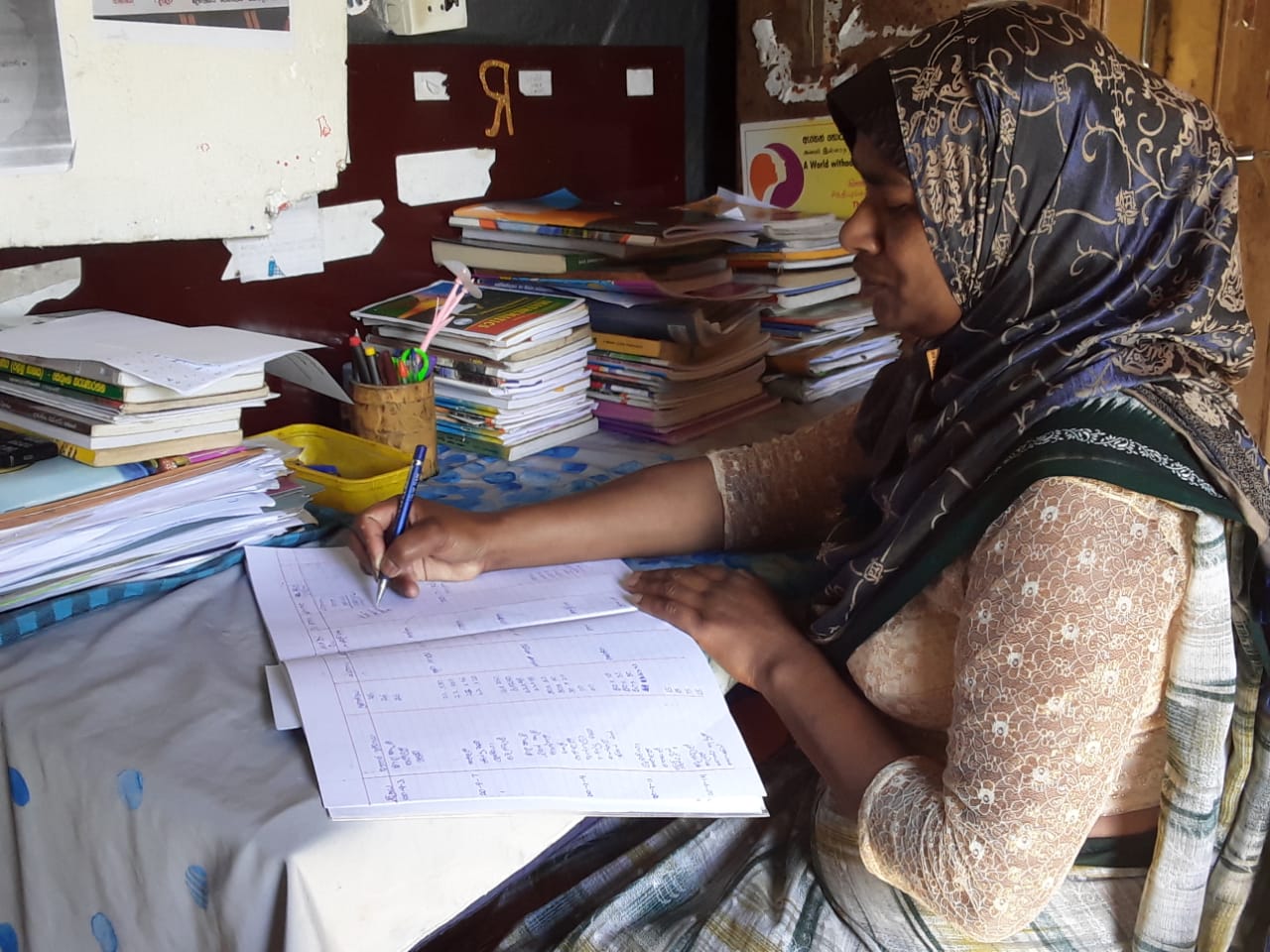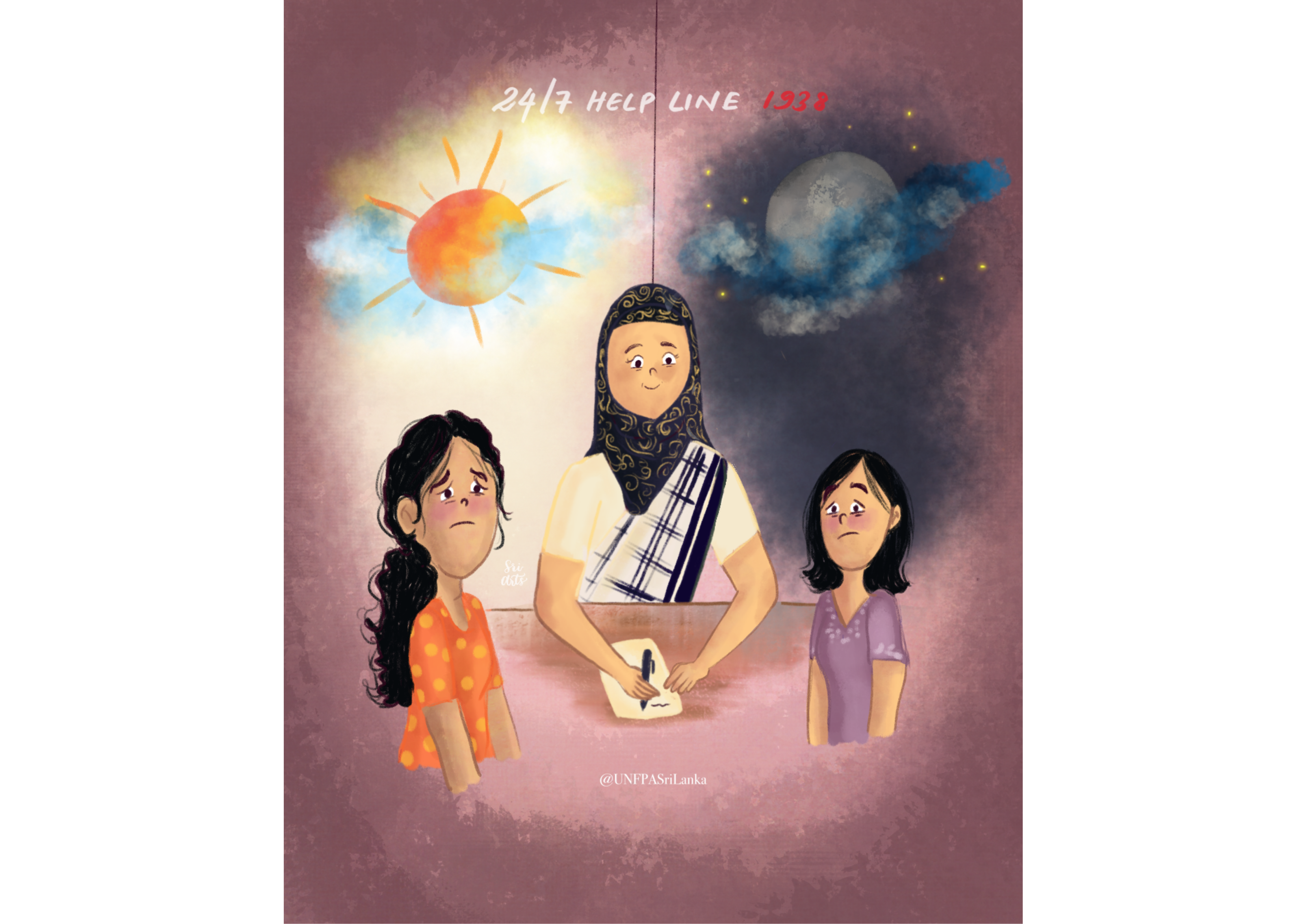This is the story of Jerina Carim, Coordinator, Development Centre
“Despite being a counsellor for the past 18 long years, I still silently grieve for every single woman and child I counsel, who to me resemble my sisters or my daughters. I grieve for those who face the harsh realities of gender-based violence, and have been inevitably locked in with their perpetrators during the COVID-19 lockdown and suffered behind closed doors, with nowhere to run or hide.”
While the rest of the world hit pause during the lockdown, frontline workers such as doctors and nurses tirelessly battled the health crisis. But behind the scenes, many other mechanisms from police officers to counsellors to other women’s shelter service providers were functioning at higher rates to battle gender-based violence (GBV) emerging from the shadows of the pandemic. Jerina, a mother of two girls in their late teens, is one such counselor attached to the Women’s Development Centre (WDC) in Nuwara Eliya.
“Losing my mother when I was just 7, forced me to take on a motherly role for my two younger sisters aged 5 and 2. Now, even as I work as a counsellor, my motherly instincts automatically come in as I offer my care and support to the victims and survivors of violence.”
As Sri Lanka rolled out strict measures to stop the spread of COVID-19, women and girls were confined to their homes, waking up daily to the dark possibilities of violence and abuse by an intimate partner. Despite having two children of her own, Jerina ventures out daily to provide comfort and solace to those who need her support – travelling day and night with a curfew pass in hand. “Whether it’s at a park or at the edge of a lake, after or during work hours, I have always made time to ensure the safety of those in trouble. They need to know that they are not alone.”
The current chilly weather in the Central Province however has made it even more difficult to commute to reach those in need. Similarly, many who need support are also unable to leave their homes to get help. Even when they do manage to leave home, they have to travel several miles and miles just to reach the city. This is most often coupled with the reluctance to speak out due to societal norms, stigma, and fear of the next step affecting the health and wellbeing of the children in the family as well.
“A few months ago I received a call from a woman who, in a moment of vulnerability, admitted that her husband had burnt her. But, once I reached the hospital to check on her, she (the victim/survivor) changed her narrative to say that she had accidentally got burnt while doing a “puja” (prayer), and she returned home – back to her place of abuse”.
Despite the health dangers that the pandemic poses, service providers like Jerina continue to work sacrificing personal time, holidays, and geographical limitations. “The possibility of making a difference, providing relief, and saving a life has pushed me to battle through these difficult times to reach those who need my help, be it by day or by night. I am blessed that my family understands my calling….and dedication to this role….”
***
UNFPA works with the Government of Sri Lanka and other key stakeholders to ensure zero unmet need for contraception; zero preventable maternal deaths; and zero gender-based violence and harmful practices.
As we head into a period of 16 days of activism against GBV from 25 November to 10 December, this year we want to draw special focus on the many frontline health workers and service providers like Jerina who strive to create a safer world for all despite COVID-19. Together, let’s take action to shed a light on this shadow pandemic. Let’s also call for action by policymakers across the world to prioritize this issue even amidst the pandemic because the world cannot prosper if a home is not safe for women and girls. This is an important part of our commitment to leaving no one behind.
If you or anyone you know is in need of help, reach out to organisations that can support you. They will treat all information confidentially.
- Women in Need helpline - 0114718585 / 0777349100
- Women's Help Line - Ministry of Women and Child Affairs - 1938


